- Tracing its roots to 1890, Everest University-Tampa can rightfully claim to be the oldest, continuously operating business college in the State of Florida. Our modern labs and classrooms offer all the modern amenities for the 21st century student. We specialize in offering short-term career training in Allied Health fields such as Medical Assistant and Massage Therapy and Trades programs such as Electrician and Heating, Ventilation and Air Conditioning. Our more advanced programs allow a student to pursue Associate�s, Bachelor�s, or Master�s degrees in such fields as accounting, business, criminal justice, medical insurance billing and coding, and paralegal. We�ve designed each class to help you understand vital concepts quickly and easily. To create a sense of community within our school, we plan events throughout the school year. We have quarterly Student Appreciation Days filled with food, fun and activities incorporating seasonal events, such as Halloween costume contests, Constitutional activities and Spring Fests. Our campus also offers a tutoring program that is staffed by Student Ambassadors and organized by our Student Services Coordinator. We offer tutoring in diverse subjects ranging from medical diploma subjects to accounting, business, and finance.
School Highlights
Altierus Career College-Tampa served 511 students (95% of students were full-time).
The college's student:teacher ratio of 10:1 was lower than the state community college average of 20:1.
Minority enrollment was 95% of the student body (majority Black), which was more than the state average of 67%.
School Overview
Altierus Career College-Tampa
(FL) Community College Avg.
Carnegie Classification
Masters Colleges and Universities II
Not applicable, not in Carnegie universe (not accredited or nondegree-granting)
Institution Level
At least 2 but less than 4 years
At least 2 but less than 4 years
Institution Control
Private not-for-profit
Private not-for-profit
Total Faculty
50 staff
139 staff
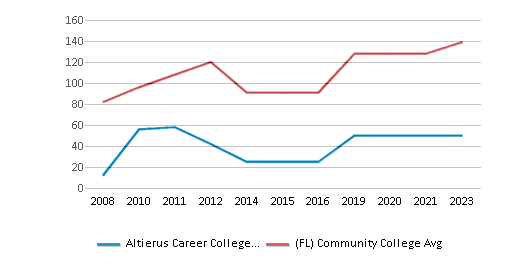
Student Body
Total Enrollment
511 students
646 students
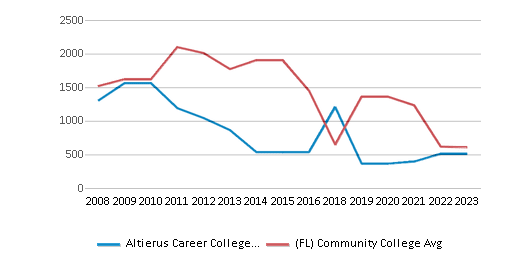
Student : Teacher Ratio
10:1
20:1
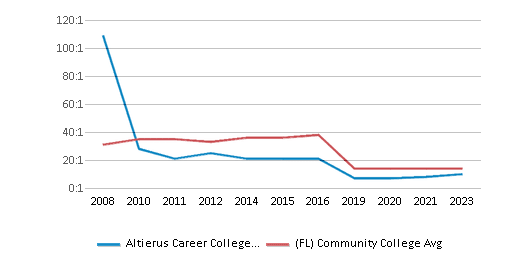
# Full-Time Students
487 students
587 students
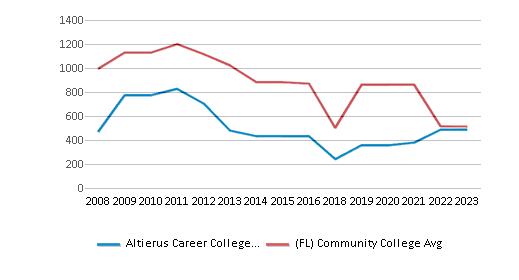
# Part-Time Students
24 students
557 students
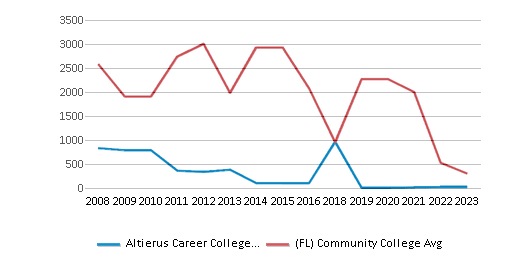
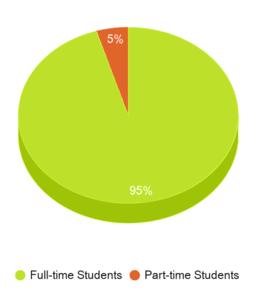
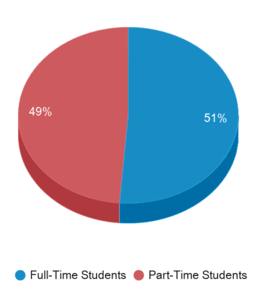
# Enrollment Undergraduate
640 students
261 students
# Full-Time Undergraduate Students
487 students
574 students
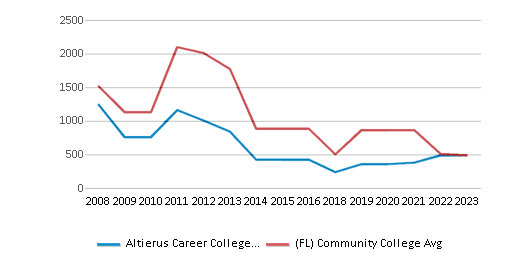
# Full-Time Graduate Students
11 students
85 students
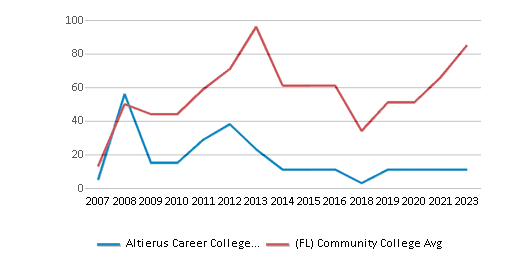
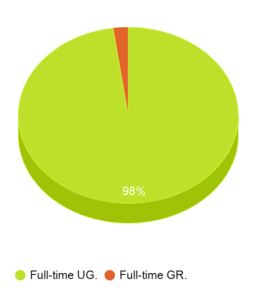
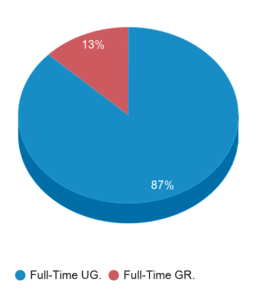
# Part-Time Undergraduate Students
24 students
648 students
# Part-Time Graduate Students
n/a
36 students
Total Dormitory Capacity
n/a
174 students
% American Indian/Alaskan
2%
n/a
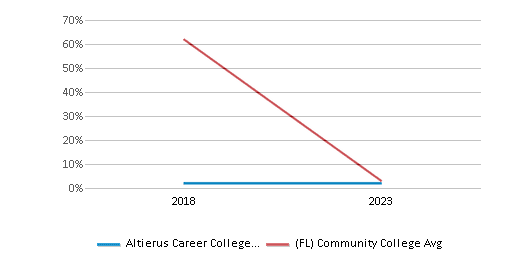
% Asian
26%
5%
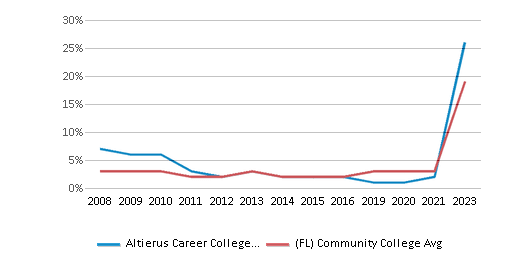
% Hispanic
n/a
30%
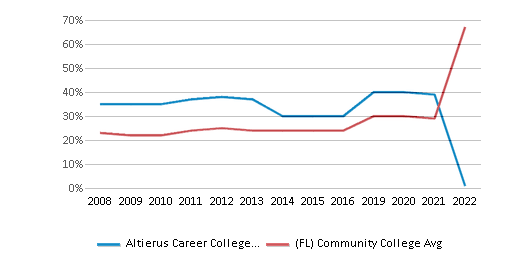
% Black
37%
19%
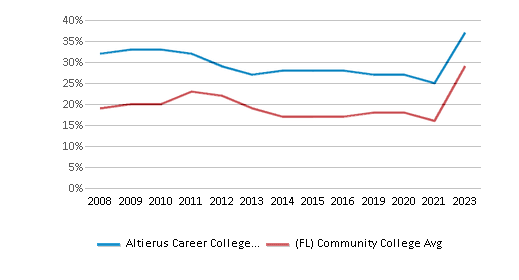
% White
5%
33%
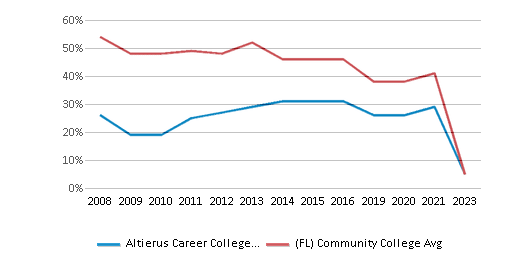
% Hawaiian
25%
2%
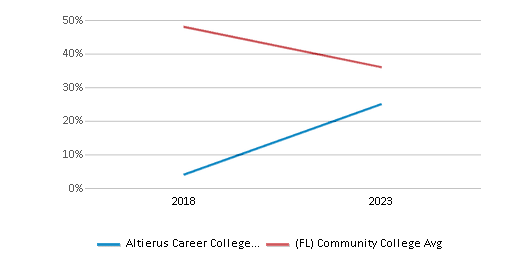
% Two or more races
4%
4%
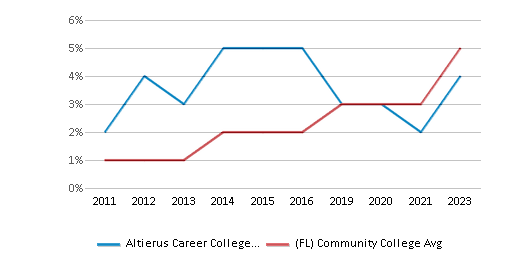
% Non Resident races
n/a
2%
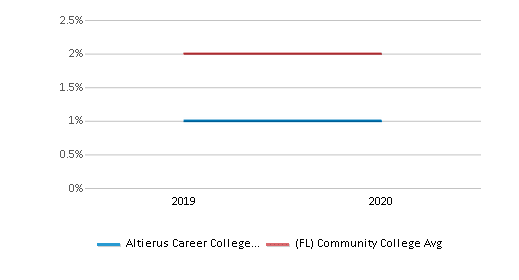
% Unknown races
n/a
5%
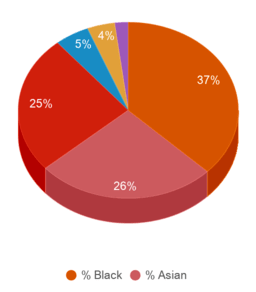
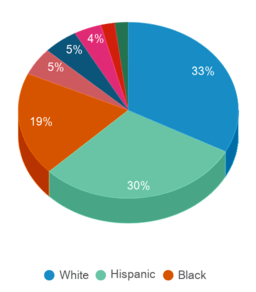
Diversity Score
0.73
0.76

College Completion Rate (Students who graduate in less than 4 years)
0.7419%
0.6183%
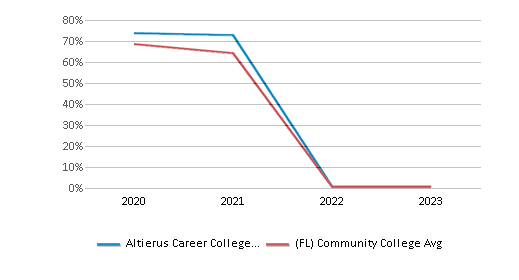
College Completion Rate (Students who graduate in 4 years or more than 4 years)
n/a
0.4334%
Average Graduate Earnings (10 Years)
$29,200
$31,500
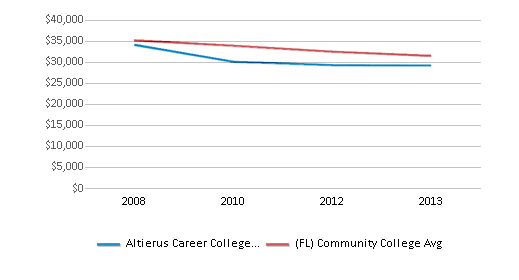
Tuition and Acceptance Rate
Private State Tuition Fees
$14,940
$16,355
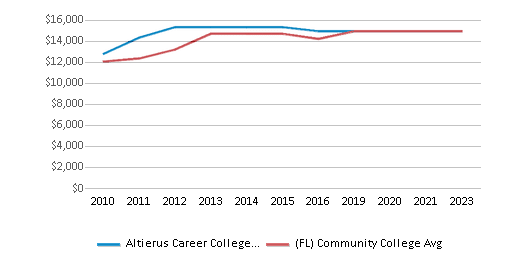
% Students Receiving Some Financial Aid
100%
88%
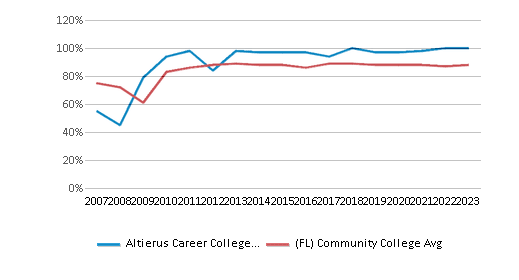
Median Debt for Graduates
$8,898
$9,750
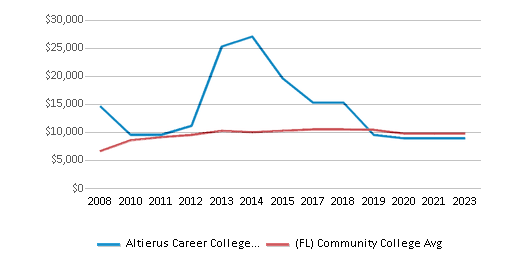
Median Debt for Dropouts
$4,486
$5,500
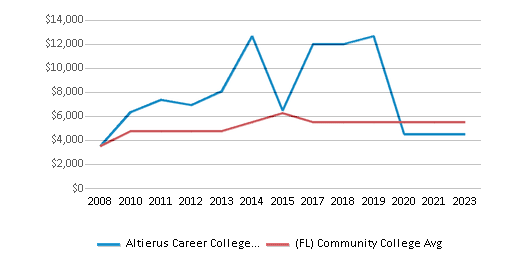
Acceptance Rate
74%
74%
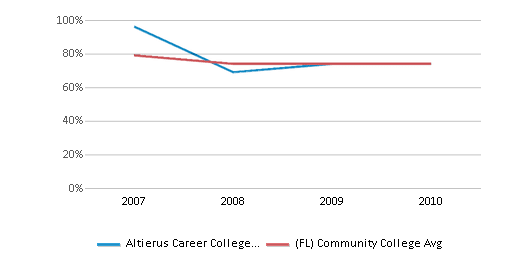
SAT Reading
n/a
442
SAT Math
n/a
429
ACT Composite
n/a
18
ACT English
n/a
18
ACT Math
n/a
18
Source: 2023 (or latest year available) Integrated Postsecondary Education Data System (IPEDS)
Frequently Asked Questions
How much does Altierus Career College-Tampa cost?
Altierus Career College-Tampa's private state tuition is approximately $14,940.
What is the acceptance rate of Altierus Career College-Tampa?
The acceptance rate of Altierus Career College-Tampa is 74%, which is equal to the state average of 74%.
In what neighborhood is Altierus Career College-Tampa located?
Altierus Career College-Tampa is located in the Northwest Tampa neighborhood of Tampa, FL.
Recent Articles

Obtaining Your Bachelor's Degree at a Community College
Explore the evolving landscape of community colleges offering bachelor's degrees, addressing affordability, accessibility, and workforce needs.

A to Z of Community College Certificates and Courses
From business and healthcare to technology and skilled trades, the article showcases the breadth of options available to students seeking to enhance their knowledge, develop new skills, or pursue career advancement.

What is a Community College?
This comprehensive guide explains what a community college is, its history, and its role in higher education. It covers the types of programs offered, differences from four-year colleges, benefits of attending, and important considerations for prospective students, providing valuable insights for those exploring educational options.





